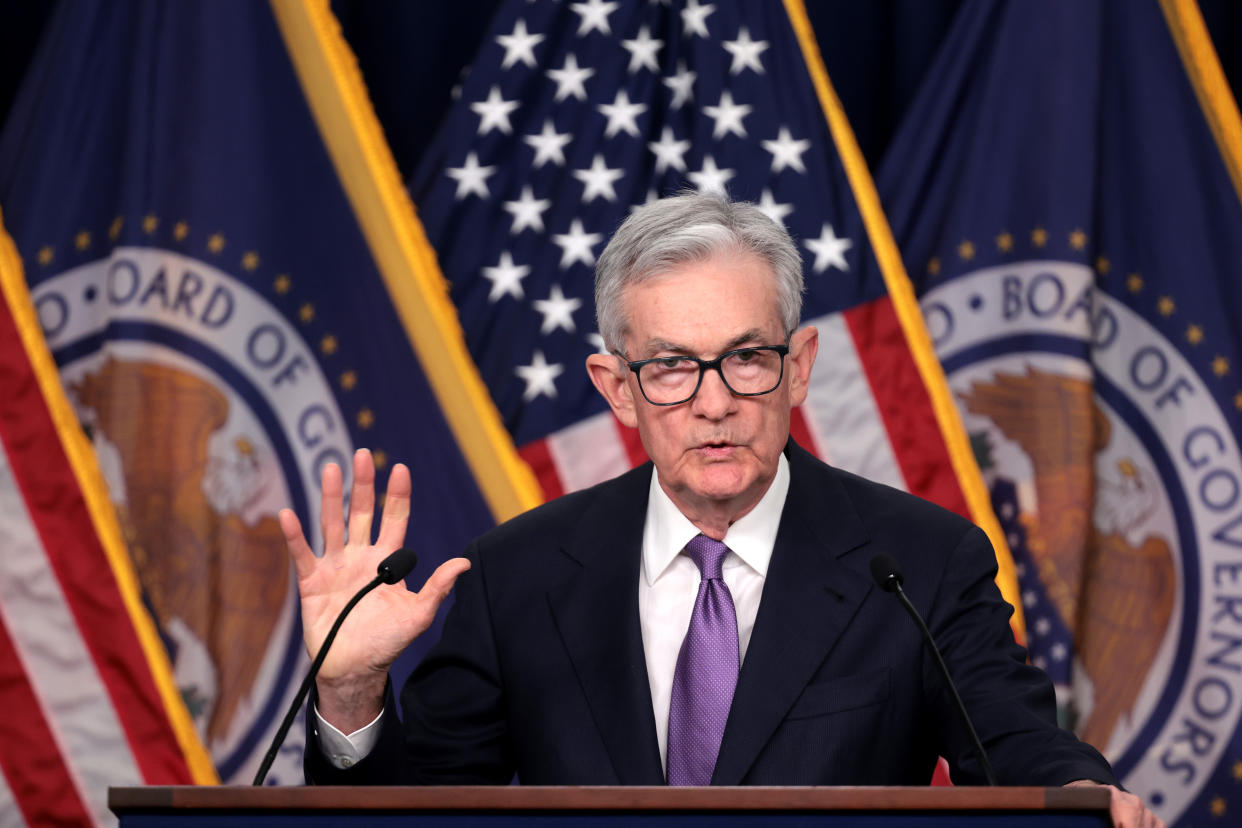Time to 'lock-in' if you have your eye on a CD
As the adage goes, what goes up must come down.
And my, it has been a ride up this year for those of you investing your short-term money in federally insured certificates of deposit.
The average annual percentage yield on a one-year CD, for example, while still modest, nearly doubled from 2.19% a year ago to 3.99% in December, according to the financial site DepositAccounts.com, part of LendingTree. This is the average of the more than 3,000 one-year CDs that the site tracks. The vast majority are from brick-and-mortar institutions (both banks and credit unions).
However, the most attractive rates — offered mostly by online banks — were recently hovering above 5.5% for a one-year certificate, down a smidge from 5.87% in December.
These are still some of the highest rates in more than two decades.
But with the Federal Reserve signaling multiple interest rate cuts in 2024, it looks like the slide back has begun. If you haven’t done so already, the time is nigh to lock up those rates.
Read more: Best CD rates: How to maximize your return
What’s going on with CDs
“CD rates are already starting to fall as we move closer to the first Fed rate cut,” Ken Tumin, a senior industry analyst at LendingTree and founder of DepositAccounts.com, told Yahoo Finance.
So, if you’ve been waiting to nab a sweeter deal, that’s not likely to happen.
Here’s why: CD rates began to tick upward from below 1% after the Fed began bumping up its benchmark interest rate in March of 2022 to wrestle inflation.
Since banks typically move in tandem with the federal funds rate in setting interest rates on loans, savings accounts, and CDs, one benefit of the rate hikes was that savers looking for a safe investment for a year or less could get the best yields in ages. To savers’ delight, the Fed raised its benchmark rate 11 times to a 22-year high of about 5.4%.
In mid-December, though, the Fed held steady on the benchmark rate and signaled it would likely cut interest rates by a total of 75 basis points, or 0.75%, in the year ahead.
Read more: What the Fed rate-hike pause means for bank accounts, CDs, loans, and credit cards
“A faster decline of CD rates will likely take place once the Fed rate cuts begin,” Tumin said. “So locking in CD rates now makes sense before rates fall more.”

Locking in longer rates
Keep in mind, even as rates settle back, there will remain a sizable gap between the national average and the highest-yielding, nationally available offers, so the standard advice that it pays to shop around is as applicable as ever.
CDs with terms from nine to 18 months currently have the highest rates, Tumin said, but it’s also worth considering longer-term CDs – two to five years.
“Long-term CDs can pay off if rates have large declines. By investing in various terms, you maximize yield this year and for the next few years,” he added.
Other experts are on board.
“We’ve seen the peak in CD yields, and they’ll continue to pull back as the year progresses,” Greg McBride, senior vice president and chief financial analyst at Bankrate.com, told Yahoo Finance. “If you’ve had your eye on a CD, especially a maturity longer than one year, now is the time to lock in. They’re unlikely to improve by waiting.”
Read more: Are CDs worth it?

Living with no access to funds for a ‘definitive amount of time’
With CDs, it’s important to consider when you will want to access those funds.
“A CD offers some assurance that you will continue to get today’s high interest rates, but at the same time, it locks up your cash,” Kelly LaVigne, vice president of Consumer Insights at Allianz Life, told Yahoo Finance.
“You have to be comfortable putting that money away for a definitive amount of time,” she said. “CDs are short-term vehicles, which could be appropriate for an emergency fund or to save up for a purchase in the near future. It likely is not the option for long-term retirement accounts — investing is. Keeping money in cash will only cause you to lose out in the end.”
Alas, more than 6 in 10 Americans (61%) say they would rather have their money sit in cash (or a cash equivalent like a CD or money market account) than endure market swings, according to a new Allianz study.
The cost of cashing out early
You don’t want to lock up money that you can’t afford to leave alone because you take a hit if you need to get out of a CD before it matures. If you have to withdraw your cash early, you’ll usually pay a penalty (often a few months of interest).
There are ways to buy “no penalty” CDs, which permit you to cash out early if necessary, but you’ll typically find these pay lower rates than traditional CDs.
Short-term savers take a breath — the glass remains half-full.
“Even with CD yields expected to move lower, the inflation rate is expected to continue easing too,” McBride said. “2024 is shaping up to be another good year for savers, where returns on CDs, savings accounts, and money markets remain well ahead of inflation.”
Kerry Hannon is a Senior Columnist at Yahoo Finance. She is a workplace futurist, a career and retirement strategist, and the author of 14 books, including "In Control at 50+: How to Succeed in The New World of Work" and "Never Too Old To Get Rich." Follow her on X @kerryhannon.
Read the latest financial and business news from Yahoo Finance
